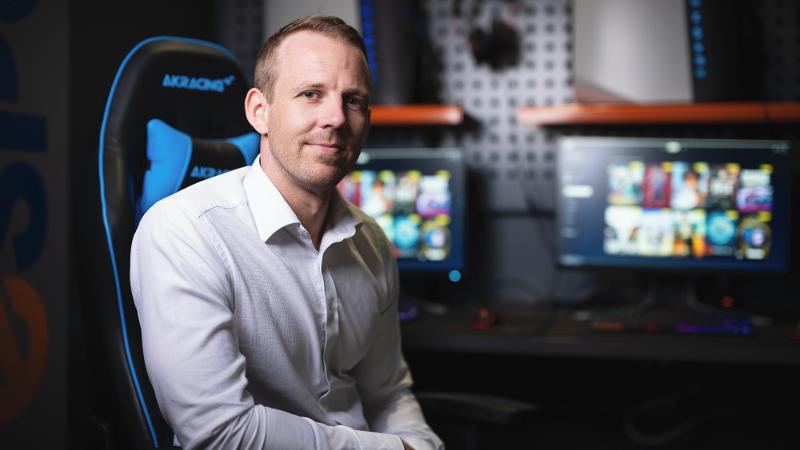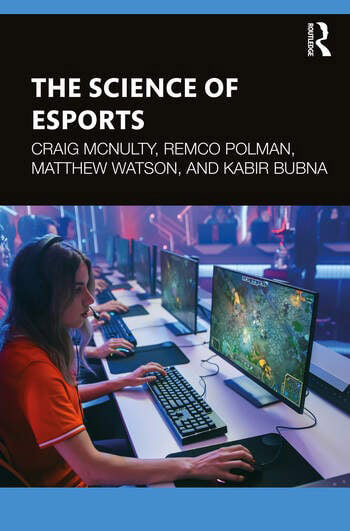
While it has seen a recent explosion in popularity, the world of esports has significant cultural and player welfare issues; the path to change lies with coaches and allied health professionals say the authors of a new book The Science of Esports (Routledge).
With esports, virtual sport and the concept of sports-technology a rapidly growing global industry predicted to be worth $111 billion-plus by 2032, concerns remain about some aggressively dominant elements of online communities involved.
“Esports training and performance take place online and in-person at LAN tournaments or on-stage games, so it is important to be aware of the challenges and demands on players and coaches in these different settings,” lead author Dr Craig McNulty from QUT’s School of Exercise and Nutrition Sciences said.
“Esports has rapidly evolved in recent years, with a growing player-base, increased spectators, broadcasting opportunities, and revenue. At the same time, toxicity in esports is a major issue that must be addressed.
“It is now universally recommended coaches embrace ‘nested planning’, which allows for the regular adaption of priorities to meet changing circumstances, including the mental, emotional, and physical state of players. It’s about reviewing progress and performances and then aligning overall goals with month-to-month and day-to-day team activities.
“Coaches play a critical role in esports, and that needs to include safeguarding of children and other vulnerable individuals. Measures need to be taken to protect them from harm, abuse, or neglect.”
Due for publication on November 10, The Science of Esports highlights the importance of talent identification and development pathways, coaching education, and measures to prevent overuse injuries and obesity.
 It also stresses the need to maintain the integrity of the industry and specific games within by addressing instances of cheating and gambling in esports.
It also stresses the need to maintain the integrity of the industry and specific games within by addressing instances of cheating and gambling in esports.
Dr McNulty, whose research areas include athlete and esports athlete exercise physiology, oxygen uptake kinetics, and physiological measures in esports, said it was crucial to provide psychological support to esports athletes, especially at the elite level, to manage stress, develop coping strategies, and enhance performance and psychological wellbeing.
“Research is required to identify the determinants of performance and best practices for training and competition,” he said.
“This would include a needs analysis of game titles and players in relation to psychophysiological impacts to guide exercise programming, along with assessments of strength, cardiovascular fitness, cognition, and body composition to inform nutritional planning and interventions.
“The motivational orientation of esports athletes is also critical for talent development, engagement, and performance, so it is essential to develop a growth mindset and intrinsic motivation through the development of psychological skills training programs.
“Team cohesion is important for success in esports but there is work to be done in terms of developing strategies to enhance this during training and competition. Preparing for in-person tournaments, for example, requires effective planning, training in simulated conditions, familiarising players with venue conditions, and developing routines.”
The Science of Esports was co-authored by Professor Remco Polman, Executive Dean, Institute of Health and Wellbeing at Federation University, Matthew Watson, Director of Learning and Development with the International Federation of Esports Coaches and a lecturer in esports at the University of Northampton in the UK, and Kabir Bubna – Esports coach and a research assistant with The International Federation of Esports Coaches.
QUT is heavily invested in esports, a commitment outlined in the QUT Sports Strategy. In 2019, it announced the first Australian university-endorsed program to offer scholarships to competitive gamers and has a purpose-built esports arena at the Gardens Point campus.
In August, QUT hosted the Motorsport Australia Queensland Esports State Championship and recently launched the QUT Sport Tech Van, funded through the Higher Education Participation and Partnerships Program to improve access to undergraduate courses for people from regional and remote Australia. With global partner, technology giant Cisco, it offers esports, virtual cycling, reaction training, simulated golf, smart-tech and wearables, broadcasting and performance analytics will be wrapped into the suite of activities delivered.
Main image: Dr Craig McNulty. Photo: Tony Phillips, QUT Media & Communication
Media contact:
Amanda Weaver, QUT Media, 07 3138 3151, amanda.weaver@qut.edu.au
After hours: 0407 585 901, media@qut.edu.au


